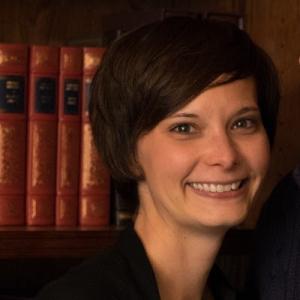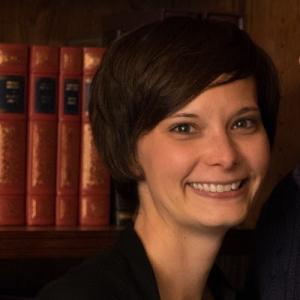Supporting research to solve complex problems: Q&A with Rebecca Shea Irvine


September 2021
Rebecca Shea Irvine joined IRWG as the Program Director for Faculty Research Development in June 2021. In this role, she advances all types of feminist research by working with faculty to find funding sources, craft proposals, and develop research agendas. Rebecca also consults on book proposals, arts and performance-based research, hosts brainstorming sessions, and creates contexts to bring new collaborators together.
We interviewed her to learn more about her approach to research development, her background and scholarly interests, and how she envisions her role in catalyzing gender research at U-M.
What does Faculty Research Development entail?
Faculty research development can take many forms and may include:
- Assisting faculty members to develop their research agenda through deliberate and strategic considerations;
- Working with faculty to select the right funding opportunities and craft proposals that maximize their potential of success;
- Helping to establish networks of scholars and foster collaborations; and
- Offering programming that encourages peer learning in areas related to the development, implementation, and dissemination of research.
What is your academic background?
I grew up in Michigan, graduating from Utica High School prior to attending Michigan State University’s James Madison College. As a student of International Relations, I became fascinated with the peace process in Northern Ireland (which was happening at the time) and spent a semester interning at the US Consulate in Belfast. A few years later, I was fortunate to receive a Rotary Ambassadorial Scholarship that enabled me to enroll in a Master’s program to study Comparative Ethnic Conflict at Queen’s University Belfast (QUB). What was meant to be one year in Belfast turned to fifteen, as opportunities to engage in various conflict transformation efforts became available, most notably working on issues related to disability rights with local NGOs and government agencies. It was through this work that I discovered the need to learn more about how other conflict-affected places had addressed disability in their reconstruction and peacebuilding efforts and decided to return to QUB with this as my PhD research proposal. At the time I envisioned my future would be in using research skills to inform policy work but instead, I have used skills gained from working with community organisations and government agencies to inform research design in academia.
What is your research experience?
I am an interdisciplinary social scientist that is passionate about breaking down disciplinary boundaries in order to solve complex problems. I especially enjoy community-engaged and comparative research methods and am always seeking out ways for research to inform policy and practice in order to have a positive impact. A few of the research projects that I have worked on include:
- Agricultural Research as a Catalyst for Gender Equality: A Practical Tool for Afghan Researchers (funded by USAID)
- Gender and Disability Inclusion in Agricultural Program Development in Egyptian Higher Education (funded by USAID);
- Getting the Right Support for Victims of Sexual Violence who have an Intellectual Disability (supported by UK Big Lottery - DRILL funding);
- Supported Decision Making - Experiences, Approaches and Preferences (supported by UK Big Lottery - DRILL funding);
- Recognizing Disability and LGBTQ+ Communities in Conflict Transformation;
- Measuring the Quality of Life for Disabled People and their Families in Northern Ireland (funded by the Northern Ireland Department for Communities); and
- Numerous analysis of international human rights treaties.
What motivates you about this job?
I love the potential that strategic and well-designed research can have on the real world. It’s exciting to help researchers develop their projects and secure the funding to make the research happen.
When faculty come to you for assistance, what can they expect?
There are two primary reasons that faculty are likely to request my assistance; the first is to think strategically about developing their research agenda and the second is to respond to a specific call for proposals. In both cases, I work with the faculty member (or team) to identify the types of support that I can provide, as well as to signpost any additional resources that may be available.
Each interaction will be different and designed to address the needs of the specific circumstance; however, I will always endeavor to be honest and supportive of faculty research (even if this means having to provide reality checks from time to time).
Faculty who are doing research related to gender and/or sexuality (broadly defined) may work with Rebecca for research development support, regardless of their home school or department.
Ready to begin? Contact Rebecca at rsirvine@umich.edu to schedule a meeting or consultation.
